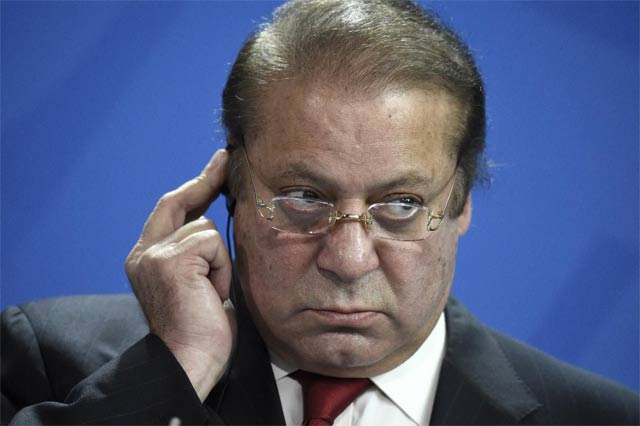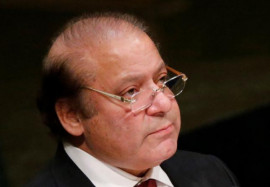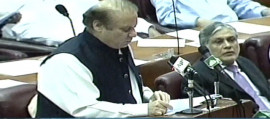
ISLAMABAD: The Supreme Court’s landmark judgment that stopped the prime minister from unilaterally taking decisions on fiscal matters will help restore the constitutional structure of trichotomy of power that the ruling Pakistan Muslim League-Nawaz severely compromised during its three-year rule.
Legal and tax experts say the apex court ruling will also regulate the powers of the Economic Coordination Committee (ECC) of the cabinet. ECC, despite being a mere panel of the cabinet, has been performing the roles of both the executive and the legislature – often by one man, they argue.
PM cannot take decisions on financial matters: SC
The constitution assigns the SC the responsibility of maintaining harmony and balance between the three pillars of the state, namely, legislature, executive and judiciary. The idea is to ensure state organs perform their respective functions within stipulated limits and constraints.
During past three years, both parliament and the executive failed to implement the Constitution in its true letter and spirit, said SC lawyer Dr Ikramul Haq. “Parliament played the role of a silent spectator when the executive was seizing its powers,” he added.
“The historical decision will regulate ECC powers and check ad-hocism in economic decision making,” said Ali Zafar, who was amicus curiae in the case. Zafar is also the Supreme Court Bar Association president.

In the past three years, the PML-N government levied over Rs1.1 trillion new taxes and a significant amount of it was levied through presidential ordinances, ECC and Statutory Regulatory Orders (SROs). The November 2015 mini-budget, which expanded the net duty on hundreds of items including food items, was approved by ECC.Dr Haq said ECC no more has the authority to take decisions on fiscal matters.
In its judgment, the SC ruled that the ordinance making power can only be exercised after a prior consideration by the cabinet. An ordinance issued without the prior approval of the cabinet is not valid, it ordered. Similarly, no bill can be moved in parliament on behalf of the federal government without having been approved in advance by the cabinet. The cabinet has to be given a reasonable opportunity to consider, deliberate on and take decisions in relation to all proposed pieces of legislation, including the Finance Bill or ordinance or act.
Cabinet slams ‘smear campaign’ against PM
The PML-N government flouted these principles. It promulgated presidential ordinances to change tax rates on CNG, collecting Gas Infrastructure Development Cess, reducing withholding tax rates on banking transactions to appease its voters and lately changing property valuation rates.
Dr Haq says that the SC judgment would not adversely affect past actions, which will be considered as ‘closed transactions’.
Another direction in the same case would also help bring some sanctity in fiscal policymaking. The SC ruling says that neither a secretary, nor a minister and nor the prime minister are the federal government and the exercise, or purported exercise, of a statutory power exercisable by the federal government by any of them, especially, in relation to fiscal matters, is constitutionally invalid and a nullity in the eyes of the law.
The court said that fiscal notifications enhancing the levy of tax issued by the secretary, revenue division, or the minister are ultra vires. However, it clarified that this court has in the past consistently held that greater latitude is allowed in relation to beneficial notifications and that principle still applies.
This will help stop the ongoing unlawful practice of increasing tax rates on petroleum products through SROs. Against the standard sales tax rate of 17%, the government is currently charging 28% tax on high-speed diesel, which is largely consumed in the public transport and by the agriculture sector.
Now, the government will have to seek directions from the federal cabinet against the current practice of changing the rates by only consulting with the Prime Minister.
The most severe curtailment will be on the finance ministry that is also in the habit of understating expenditures during budget times and then issues supplementary budgets during the course of the fiscal year. The SC has ruled that the budgetary expenditure or discretionary governmental expenditure can only be authorised by the federal government i.e. the cabinet, and not the prime minister on his own.
Published in The Express Tribune, August 20th, 2016.



































































COMMENTS (5)
Comments are moderated and generally will be posted if they are on-topic and not abusive.
For more information, please see our Comments FAQ